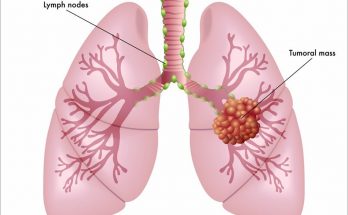The COPD treatment guidelines will depend on a patient’s overall health, their medical history and what stage of COPD they are in. COPD is a disease in which the airways in the lungs become damaged, which makes it progressively difficult for air to move through the lungs. There are two different kinds of damage that will cause this disease: the air sacs in the lungs, where O2 is absorbed in the bloodstream and carbon dioxide is excreted and can get damaged, or the airway in the lungs can become narrowed and scarred.
When the damage is extensive, it can be difficult to get rid of an excess amount of carbon dioxide or get an adequate amount of oxygen into the blood. These types of changes can also lead to other symptoms, such as shortness of breath.
Typically, the symptoms of COPD will not be completely eliminated with treatment and the disease will usually get worse over time. The treatment options that are available can help to slow down the progression and control the symptoms of the disease.
Medication Therapy Commonly Prescribed for Patients with COPD
Bronchodilators are a type of medication that’s prescribed to open up the airways. This type of med will help to keep the airways open, in addition to decreasing the amount of secretions. These medications are usually offered in the form of an inhaler.
Glucocorticoids is a type of medication that contains anti-inflammatory properties. These meds can be taken as a pill, injection or can come in pill form. The inhaled glucocorticoids can be prescribed if the patient has symptoms that are not entirely controlled by the use of bronchodilators or if the patient has frequent flare ups of COPD. This med is typically taken in pill form and will sometimes be used as a short term treatment option, but will not typically be used as a long term treatment option, due to the risk of side effects and adverse reactions to other types of medications.
Often a combination of long and short acting bronchodilators and glucocorticoids are generally used in patients who have symptoms that are not entirely controlled with the use of one medication.
A physician will not commonly prescribe cough syrup because it will not usually help with minimizing the cough. It’s also not a recommended form of treatment because suppressing the cough can often increase the patient’s risk for developing an infection.
Treatment Guidelines for the Advanced Stages of COPD
People that are suffering from the advanced stages of COPD will often have low oxygen levels in their blood. This type of condition is known as hypoxemia, which can occur even if a patient doesn’t feel short of breath or display other symptoms. People with this type of condition will need to use oxygen, occasionally or on a continual basis.
